Sarreguemines
Black & White Café au Lait Bowl - Digoing & Sarreguemines - 1900s
Black & White Café au Lait Bowl - Digoing & Sarreguemines - 1900s
Couldn't load pickup availability
A lyrical Belle Époque café au lait bowl by Sarreguemines, decorated in inky black transfer with charming vignettes of country bird-catchers framed by scrolling cartouches and blossoms.
The glaze shows a fine all-over craze and gentle wear that reads exactly as we want from a well-loved French breakfast piece - inviting, authentic, and ready to style on an open shelf or to use at the table for berries, sugar, or (bien sûr) your morning café au lait.
- Material: Glazed earthenware (faïence), transfer-printed
- Maker: Sarreguemines, Lorraine, France
- Motif: Black-and-white “bird catchers” pastoral scenes with rococo floral scrolls
- Style: French Country / Belle Époque
- Place of Origin: France
- Mark: Printed crowned Sarreguemines cartouche to base
- Date of Manufacture: 1900s
- Condition: Good antique condition with clear signs of use—fine, even crazing throughout, light surface rubbing, and minor kiln/grit specks typical of period faïence; no cracks or chips.
Dimensions
Height: 7 cm | 2.8 in
Diameter (rim): 10 cm | 3.9 in
Share
- Worldwide Shipping
- Secure Packaging
- Loving Curation
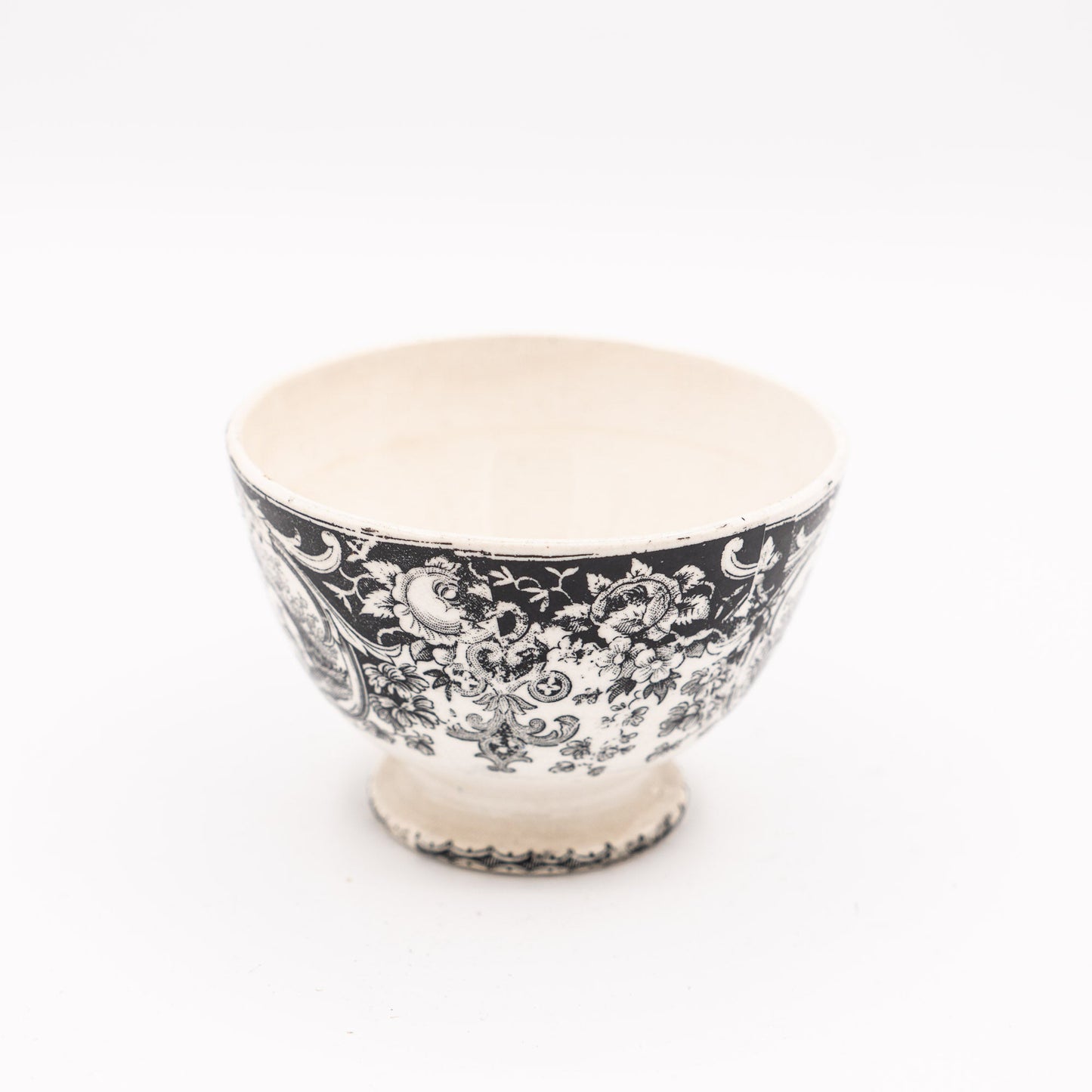
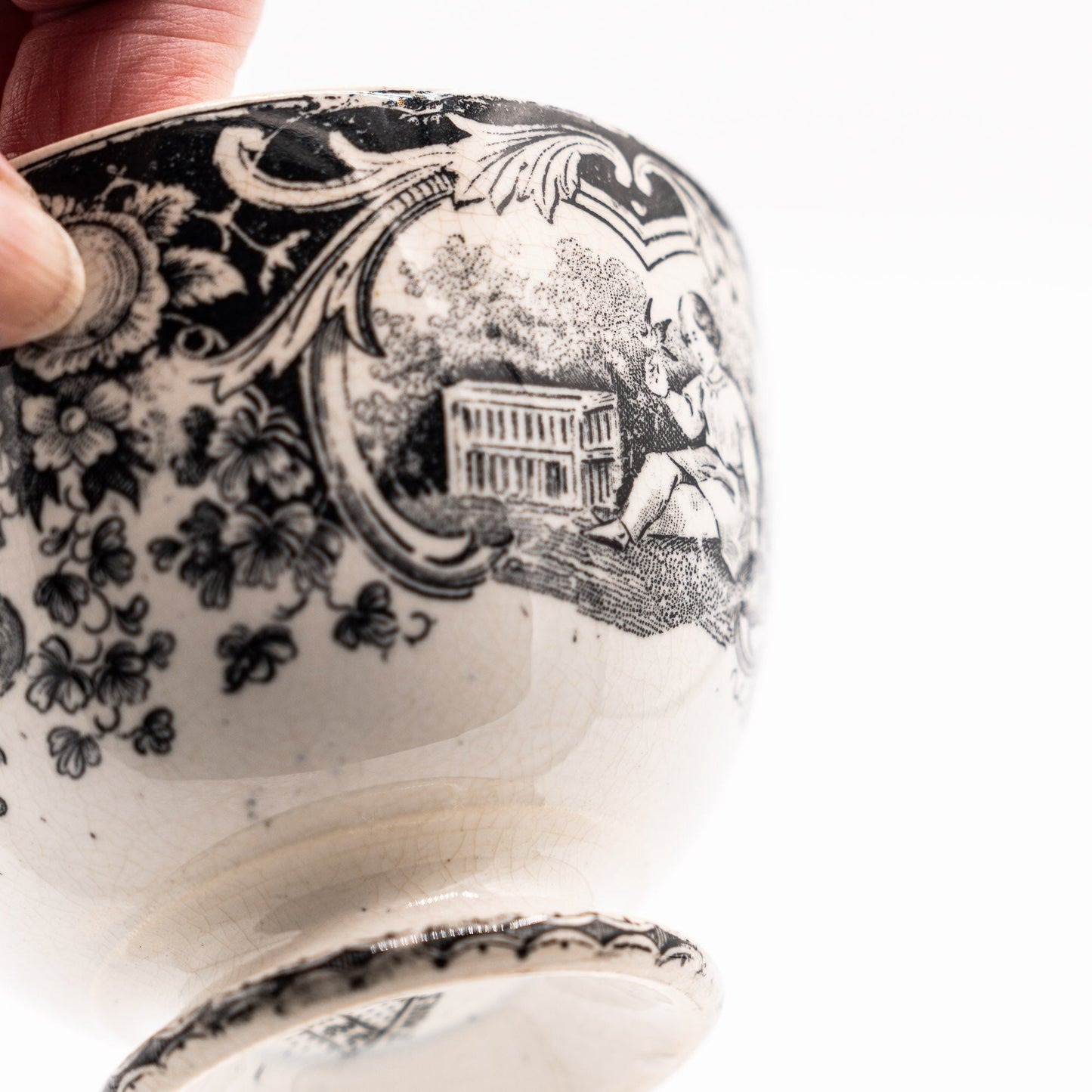
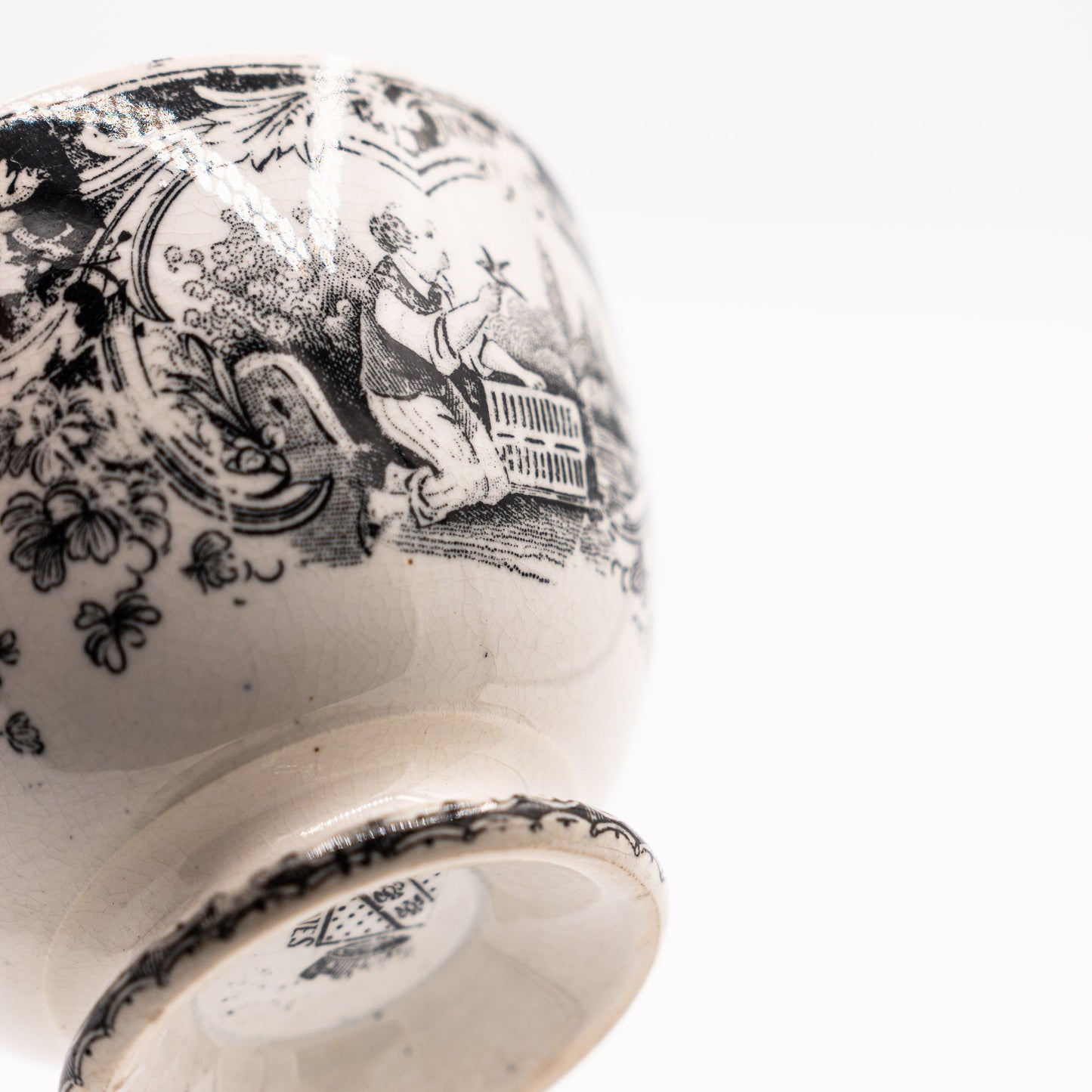
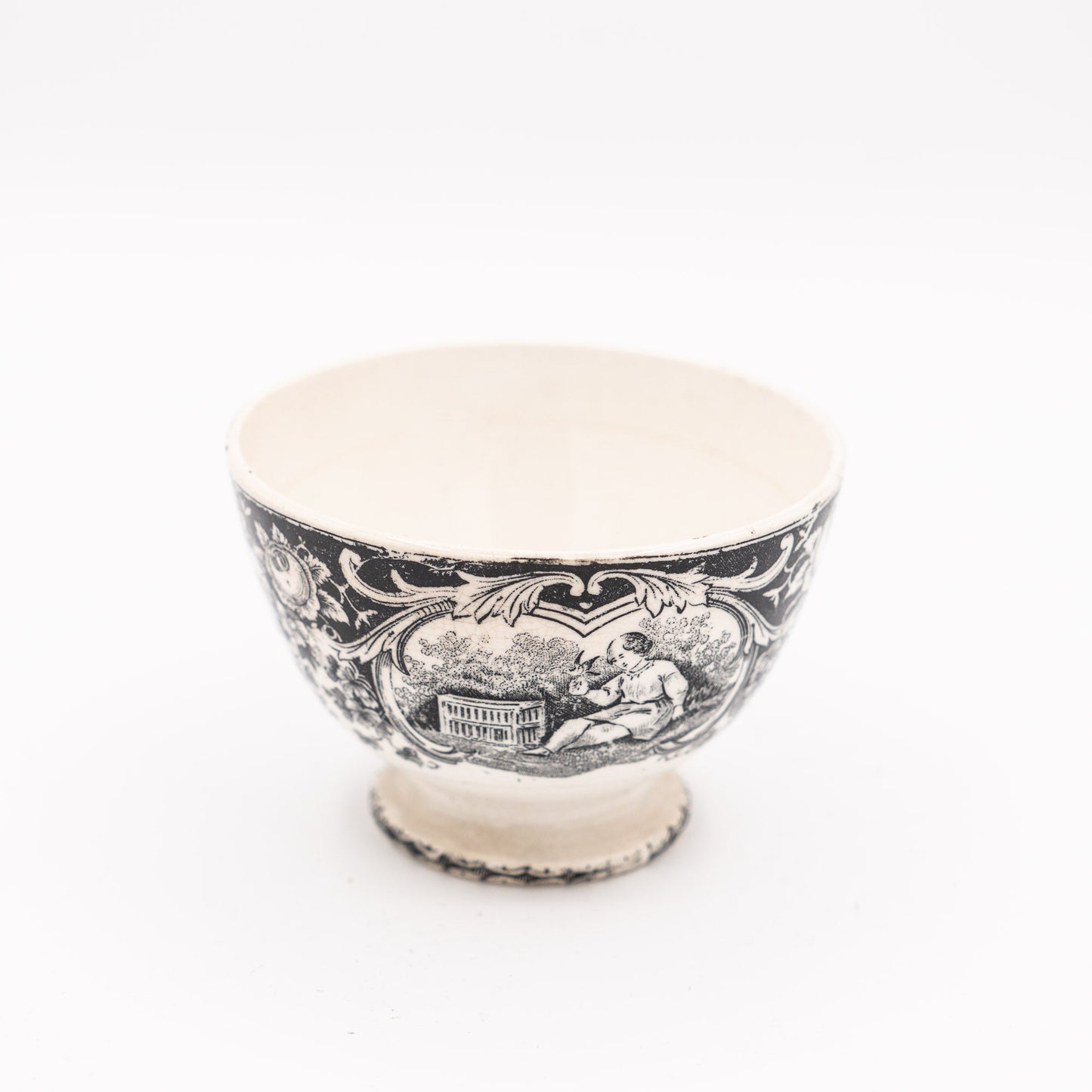
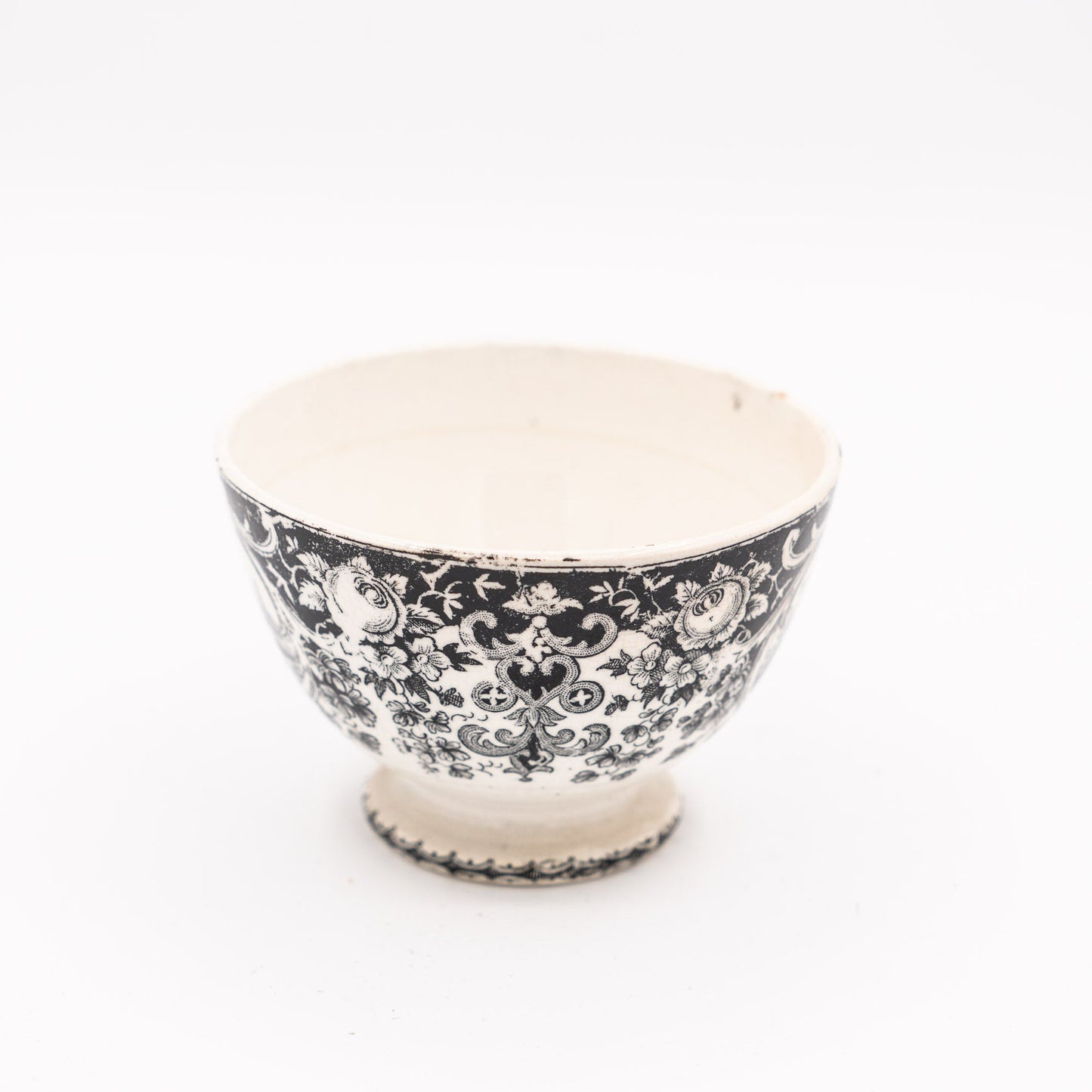
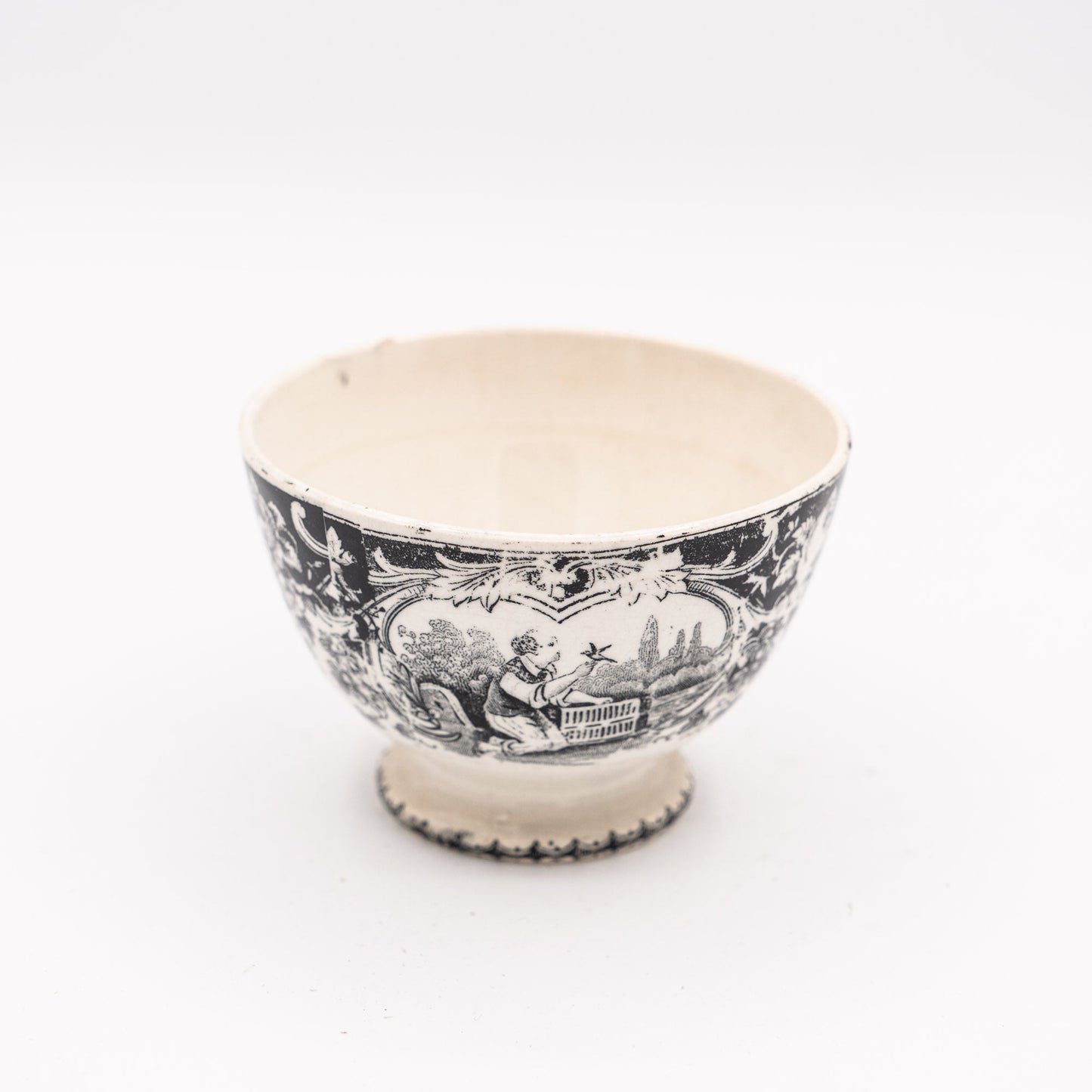
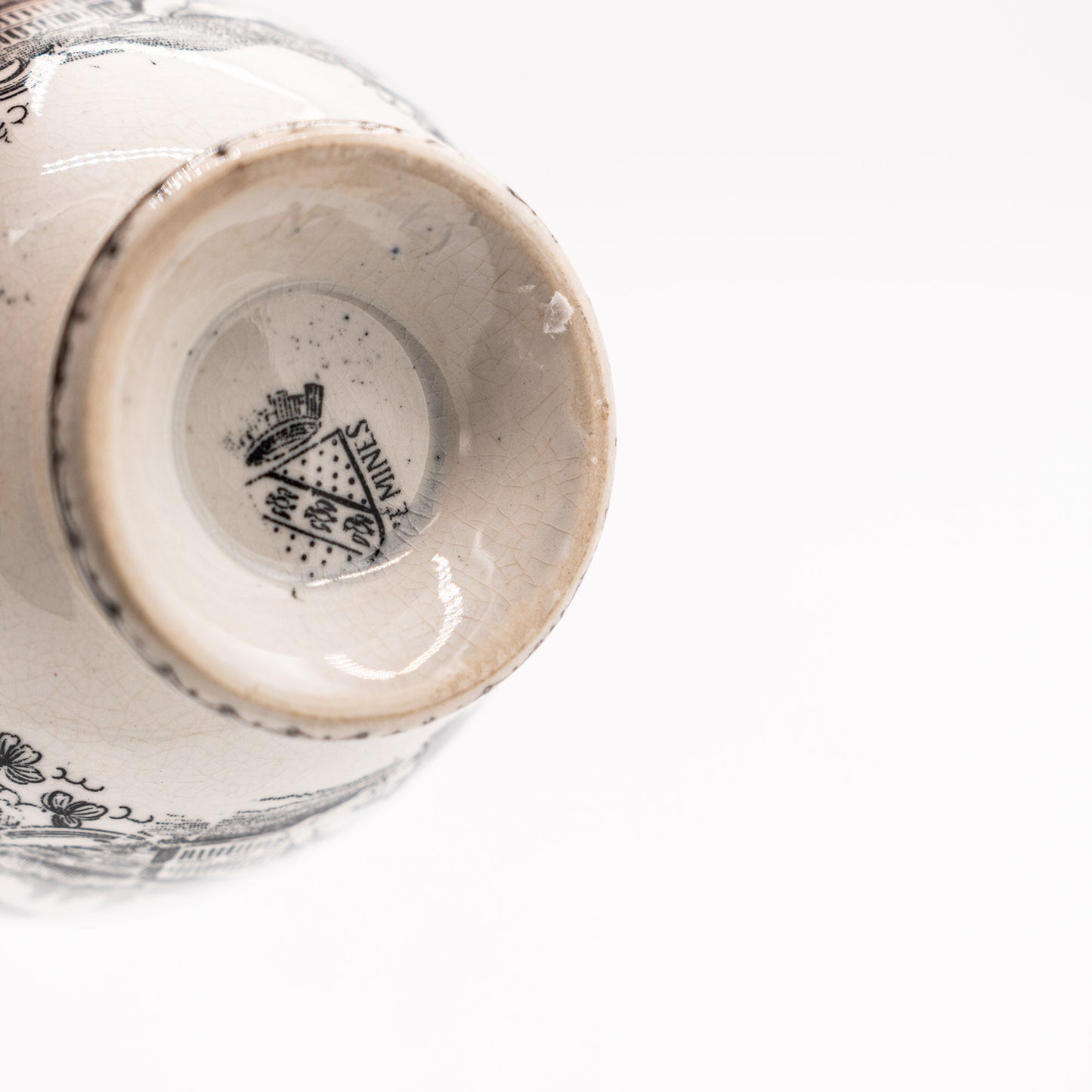
Origin & Maker
Sarreguemines is a renowned French faience company that has been producing beautiful ceramics since the late 18th century. Founded in 1790 in the town of Sarreguemines, near the French-German border, the company quickly gained a reputation for creating high-quality earthenware and faience pieces. By the 19th century, Sarreguemines had become one of France’s leading ceramics manufacturers, producing finely decorated tableware, tiles, and decorative items.
Sarreguemines gained international recognition when they showcased their work at the Exposition Universelle in Paris in 1867, a world fair that celebrated industrial and artistic achievements. This exposure helped solidify the company's reputation for innovation and craftsmanship, with their decorative faience pieces becoming highly sought after across Europe.
The company is best known for its intricate Majolica designs, vibrant glazes, and detailed hand-painting. Sarreguemines continued to flourish through the 19th and early 20th centuries, producing everything from rustic faience to elegant Art Nouveau ceramics. Today, pieces from Sarreguemines are cherished by collectors for their rich history and exquisite craftsmanship, embodying the artistry of French faience.
Blog posts
View all-

A Serendipitous Morning at the Rue de Bretagne ...
There are few joys in life that match the thrill of stumbling upon a hidden treasure, and for me, flea markets hold that magical allure. One of my favourite flea...
A Serendipitous Morning at the Rue de Bretagne ...
There are few joys in life that match the thrill of stumbling upon a hidden treasure, and for me, flea markets hold that magical allure. One of my favourite flea...
-

Emile Bourgeois and "Le Grand Dépôt" in Paris
Recently, I found this stunning Sarreguemines wash set. It was at the Brocante in Belfort, France. On this day, we had got up at 4 AM to be there in...
Emile Bourgeois and "Le Grand Dépôt" in Paris
Recently, I found this stunning Sarreguemines wash set. It was at the Brocante in Belfort, France. On this day, we had got up at 4 AM to be there in...
-

The Legacy of Robert Haviland: A Journey from N...
The story of Robert Haviland porcelain is one of artistry, transatlantic ambition, and enduring heritage. It begins in the mid-19th century when David Haviland, an enterprising New Yorker, founded Haviland...
The Legacy of Robert Haviland: A Journey from N...
The story of Robert Haviland porcelain is one of artistry, transatlantic ambition, and enduring heritage. It begins in the mid-19th century when David Haviland, an enterprising New Yorker, founded Haviland...










